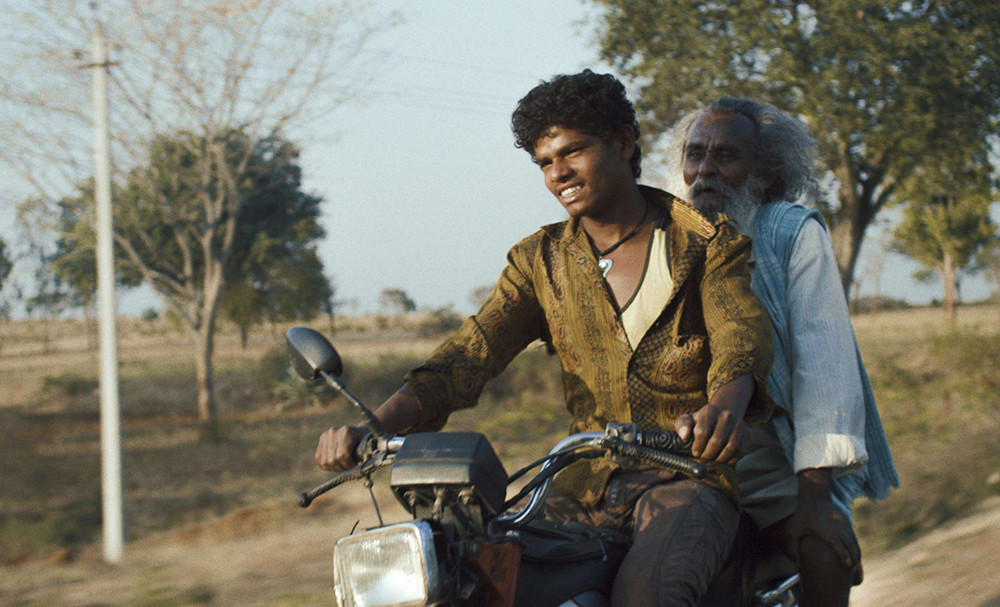Highly acclaimed at various International film festivals and a National Award winner for Best Kannada film, Thithi is an extremely confident directorial debut by Raam Reddy. He successfully blends realism with elements of the theatre of the absurd to make for a humane, whimsical, ironic, funny and sometimes even stinging little film that marks him out as a bright future for both Kannada and Indian cinema.
People in the village gather either at weddings or when someone dies, otherwise the village is mostly quiet according to Thithi’s writer Eregowda, who hails from the very same village, Nodekkopalu, near Mandya town in Karnataka where the film plays out. Thus, the idea, like the earlier Tulu language film, Ramchandra PN’s Suddha (The Cleansing Rites, 2006), was born to centre the film on events following a death in the village.
With his thorough knowledge of every nook and corner of the locale and a first hand experience of knowing its inhabitants, Eregowda, helps Reddy set up a charming and perceptive narrative of what happens in the village after the sharp-tongued 101 year old patriarch ‘Century’ Gowda (Singri Gowda) dies suddenly while attempting to relieve himself and how his demise affects the 3 subsequent generations in the family. The son, Gadappa (Channegowda), has renounced the world and is happy in his wanderings, smoking beedis and drinking cheap brandy; the grandson, Thammana (S Thammegowda), is in financial difficulty and wants their land that Gadappa has now legally inherited, but has no interest in, by hook or by crook; the great grandson, Abhi (Abhisek HN), is busy in wooing and trying to bed young nomadic shepherd lass, Cauvery (Pooja SM). The 3 men chart their paths as to what works for them even as the villagers insist on observing the 11th day function or the ‘thithi’ in Century Gowda’s honor.
There is much that Reddy and Eregowda get right in the film down to the smallest of moments and details. The film appears real, the characters, even the most minor ones, are well fleshed out, the events plausible in their own way. A big plus in the film is Reddy’s more than able handling of a largely amateur cast. In spite of admittedly awkward moments and some very conscious dialogue delivery, the cast, each one of them chosen to perfection, brings a great deal of authenticity to the film and its setting and it has to be said, acquit themselves admirably overall.
On the flip side, there are the odd passages where the storytelling does tend to get much too flat thereby disengaging you from the wonderful world that Reddy has otherwise created. However, he still has you invested enough in all the characters to wonder how it would all play out in the climax, the ‘thithi’ ritual. The climax, though, involving the entire village is a little clunky in execution and dare I say it, even slightly tacky as the various tracks of the 3 men come to different degrees of closure.
The technicalities complement the film’s treatment perfectly. The camerawork (Doron Tempert) is unobtrusive even as it captures every little detail of the village, very much a character in the film. There are no songs or even a background score in the film, thereby giving the sound designer much to work with in terms of real sounds and effects. The languid pace and rhythm (John Zimmerman) gives a gentle feel to the film though it’s two hour plus length finally does tell on the viewer.
With films like Lucia, U-Turn and now Thithi garnering both, critical acclaim and a good degree of commercial success, one can only hope that it heralds the birth of a new and vibrant indie cinema scenario in Kannada, especially with its mainstream industry stuck largely in a time warp of formulaic and mediocre fare.
Kannada, Drama, Comedy, Color


